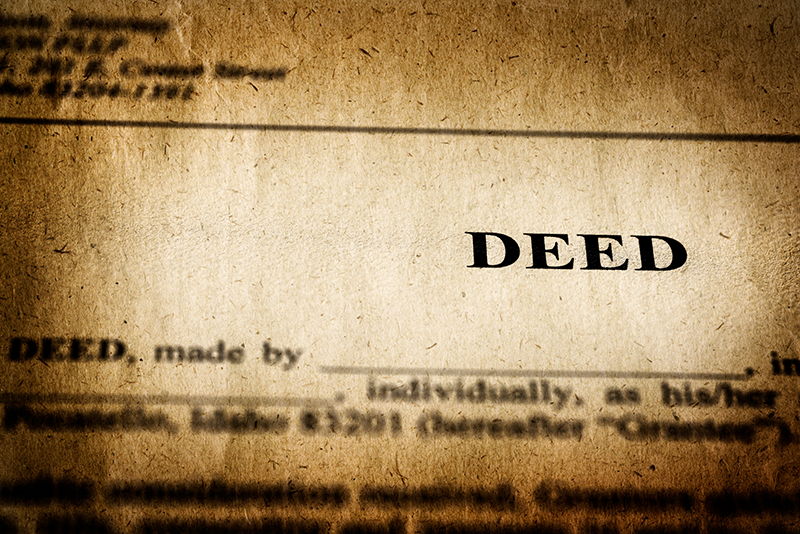
Many clients and potential clients come to us to discuss signing a TOD (Transfer on Death) deed. Most often the client wishes for the beneficiary to be one or all of their children. Misconceptions about the benefits of TOD deeds are common, and today we are going to bust them!
First misconception: that the transfer to my kids (or other beneficiary) will happen immediately and automatically upon my death. Wrong. While it is correct that title to the real estate passes immediately at death, steps have to be taken to get the County’s documents up-to-date to show that title has vested in the appropriate people. What this looks like is hiring an attorney to prepare a Devolution Affidavit (a/k/a Affidavit of Heirship), then recording it in the office of the County Recorder. Without taking these steps, the beneficiary cannot do anything with the real estate.
Second misconception: that signing a TOD deed will save me or my kids a lot of time and money. Not accurate. In addition to paying for the preparation of the TOD deed and recording fees, your kids have to pay more fees after your passing—not only whatever the attorney charges to prepare the Affidavit described above but also a fee to the County Recorder’s office and a fee to the County Auditor’s office. The same legal costs and County fees would be incurred in the event that you changed your mind about the TOD deed, because the only way to revoke or amend a TOD deed is to record another document making that revocation or change.
Third misconception: that signing a TOD deed means my kids can avoid probate. Not necessarily. Whether your children have to open a formal estate (sometimes referred to as probate) depends on many factors, including: what is the total value of your probate assets, are there any creditors, and whether the kids want or need to sell the house within the first few months after your death.
Fourth misconception: if I sign a TOD deed, I don’t need to bother with a Will. This is a horrible idea. Why? Because even if you don’t have much to pass on, a huge benefit of a Will is that it selects someone to be in charge. The Will serves to direct the rest of your probate assets. It also serves as a backup to the TOD deed in case the primary beneficiary predeceases you.
Fifth misconception: using a TOD deed doesn’t create any additional risk to the beneficiary. The only way to beat this misconception is to name the beneficiary as an additional insured on your property insurance on the same day that you record the TOD deed. Almost no one does this. If you don’t (or if your insurance company won’t allow it), your beneficiaries will have a gap in coverage in between the date of your death and the date when they obtain liability insurance coverage for themselves. Courts have sided with insurance companies where damage to a home occurred within just one week of the owner’s death and when the beneficiary had not obtained coverage of their own yet. It simply is not realistic to think that your beneficiaries will be able to move quickly enough to get insurance coverage without having some gap in coverage—and this exposes them to risk if any damage should happen to the property.
Sixth misconception: my kids can sell the property whenever they want. A few years ago the Indiana legislature updated the laws regarding creditors’ rights to “non-probate” assets. A home with a recorded TOD deed is an example of a non-probate asset. In response, Indiana title companies will now not issue title insurance for real estate transferred in this way for 5 to 7 months after the date of death. This means that if your beneficiary’s ultimate goal is to sell, they have to be responsible for the real estate and pay for all of the expenses associated with it as they wait for this waiting period to run. In contrast, if a formal estate is opened, the personal representative of the estate can deed it out to the intended beneficiary at any time and the beneficiary can then immediately sell the real estate. We have seen TOD beneficiaries open formal estates in order to be able to sell the real estate without this title insurance waiting period.
The above is not to say that TOD deeds don’t have their place, because there are times when they are useful. The goal of this post was to reveal that a TOD deed is not as much of a silver bullet as many people may believe. As with anything relating to legal issues, please consult with an experienced estate planning attorney when it comes to preparing documents and determining what strategies work best for your unique situation.
